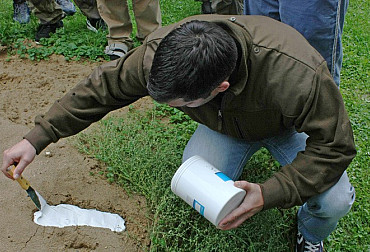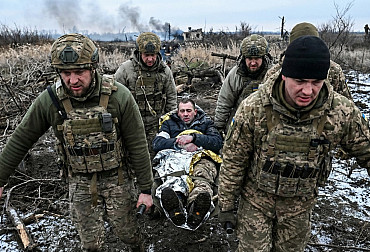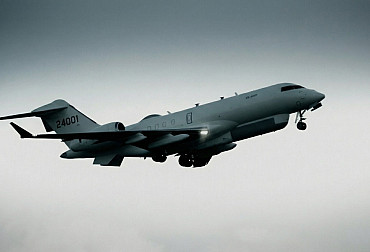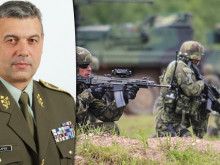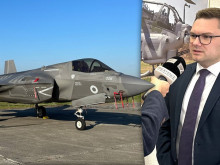Milan Macholán: By 2030, we have an ambitious plan to become the world leader in the production of small jet engines
První brněnská strojírna Velká Bíteš, a. s. (PBS Velká Bíteš) has been one of the key companies of the Czech aviation industry for many years. We talked to Milan Macholán, the CEO, about the growing importance of the company in the defence industry, among other things in the context of the current global conflicts.
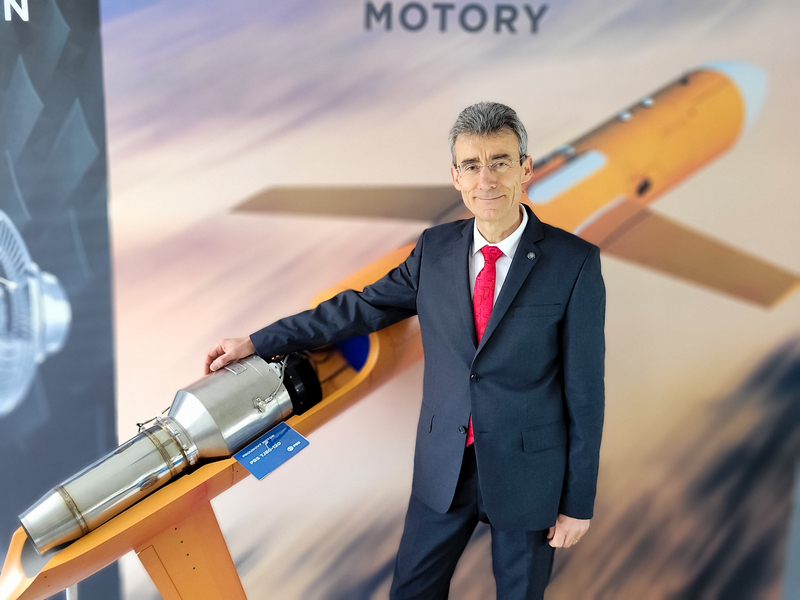
PBS Velká Bíteš has been one of the key companies of the Czech aviation industry for many years, and has been under your management for two decades. To what do you attribute the company's successes, which are continuously increasing?
I attribute the long-term success of PBS Velká Bíteš mainly to its loyal and capable employees, who generally consider the PBS brand to be their heart's business. Another key factor is the wide range of production programmes, which are not limited to a single sector, although aerospace and defence are at the forefront of these. The visionary decision we made more than twenty years ago to focus on the development and manufacture of small aircraft turbine engines also played a major role. Jet engines are now one of our fastest growing product segments, both in terms of production capacity utilisation and economic benefit to society.
Which categories of jet engines do you manufacture and for which types of assets?
We offer a wide range of jet engines in the thrust category from 400 to 2,300 Newton. To give a better idea of the size and performance of our motors, I will give the specific application. Our best-selling engine to date, the PBS TJ100 with a thrust of 1,250 N, powers, among others, the Sonex single-seat hobby jet in the USA. Simply put, the engine is capable of keeping approximately 125 kg in the air, but the actual performance depends on the aircraft design, length and speed of flight and other factors. Our current most powerful jet engine is the brand new PBS TJ200 2,300 N thrust engine, which we are currently finalizing and plan to launch next year.
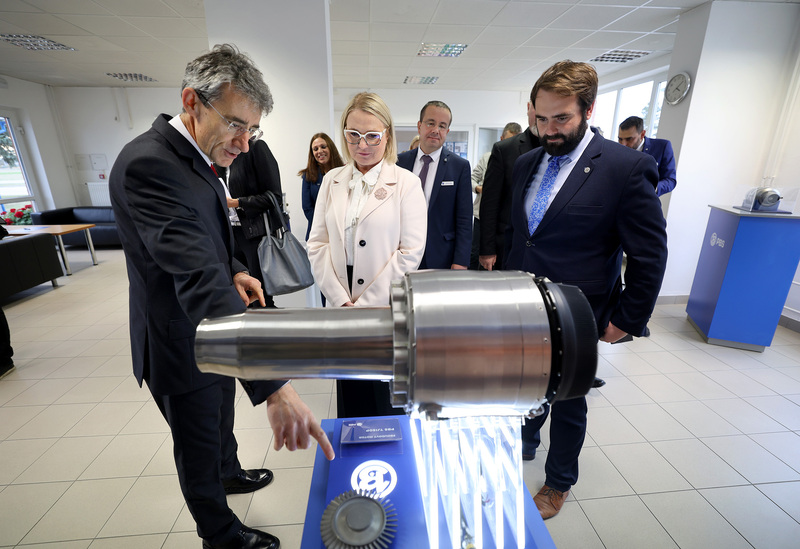
In terms of applications, PBS jet engines are primarily designed to power various types of unmanned aerial vehicles, referred to by the English acronym UAV. Until recently, our most frequent customers were manufacturers of flying target practice vehicles, which are used by various branches of the military to train their defenses. However, we are now seeing increasing demand in disposable defence applications, reflecting current trends in global markets.
Does the Czech Army use any aerospace applications with PBS engines?
Unfortunately, it is not currently used. Of course, the Army's own reference is very valuable in our segment. We believe that this will change in the future. A few weeks ago, the Minister of Defence visited us, and we also addressed this topic during her visit. We offered the Minister, among other things, the possibility of using cost-effective training targets with PBS engines, which could be used by the Czech Armed Forces. Another possibility is the use of our engines within the framework of industrial cooperation in the planned acquisitions of the Ministry of Defence. We believe that we will be able to succeed with our engines at home in the future.
What other topics did you discuss with the Minister of Defence during her visit?
First of all, we expressed our gratitude for the opportunity to participate in joint industrial cooperation projects within the framework of the purchase of F-35 aircraft from Lockheed Martin. We also discussed cooperation with the Ministry of Defence in the area of export promotion, including foreign missions, support for industry trade fair participation and other activities. We also discussed support in dealing with foreign partners, particularly in Ukraine and Israel.
What impact has the war in Ukraine or the Israeli-Palestinian conflict had on PBS? Have these conflicts increased the demand for your production?
In the context of the current situation in Ukraine, it is clear that the Ukrainians need to provide adequate quantities of defence equipment, including both ground and air systems, for their defence. Ukraine needs real functional solutions, which it also demands from us. However, we are also seeing growing demand in other markets as a number of states are expanding their defence capabilities in response to the current conflicts. We have important projects in the EU, Israel and, of course, the United States, where we founded our sister company PBS AEROSPACE several years ago. Another key market for us is India, where another of our sister companies, PBS INDIA, is starting up motor cooperation. But also very important for us is the cooperation with the Czech trainer aircraft manufacturer AERO Vodochody AEROSPACE, which has been going on for more than 50 years.
So will you be able to meet the growing demand for your engines and other products and what steps are you taking to ensure sufficient production capacity?
Yes, we are planning to expand our jet engine production up to twice as much, which we are currently doing by optimizing our production processes, modernizing our technology, recruiting new employees and partially outsourcing production. We are outsourcing not only in the Czech Republic, but we are also checking the possibility of manufacturing some components of our engines in India, for example. We are negotiating with the Ukrainian company Ivchenko-Progress on cooperation in the production and distribution of a completely new Ukrainian jet engine with a thrust of 3,400 N. If everything goes well, we should start joint production of these large engines from the perspective of PBS next year.
How is the APU segment currently doing?
We have fundamentally upgraded one of our APUs, the PBS APU SPARK40, which we officially launched this year at the Paris Airshow in the presence of Minister of Industry and Trade Sikely and other government representatives. I am very pleased that this unit has already succeeded in a challenging selection process in a new medium helicopter development project for a NATO member country. We are confident that this brand new 10-tonne helicopter will also be successful on world markets.
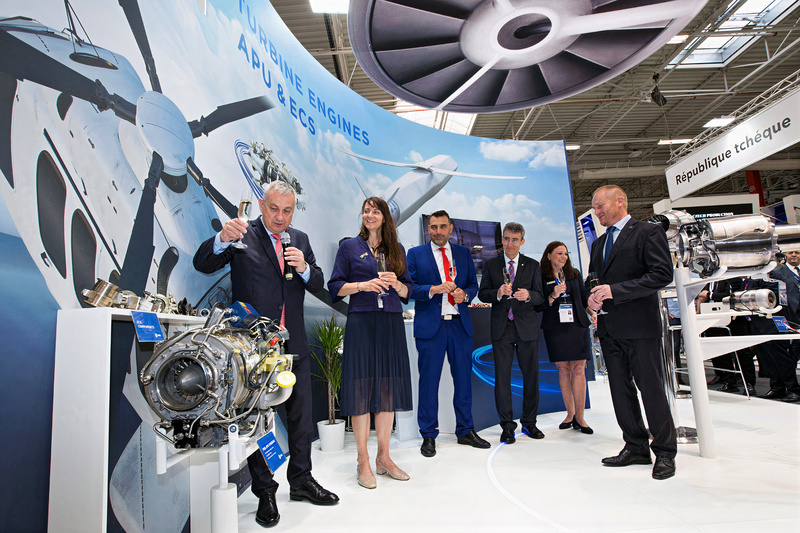
This year you have concluded Memoranda of Understanding with the American companies Lockheed Martin and Pratt & Whitney. What is the specific participation of PBS in these collaborations and what will be the scope of their activities, or in what timeframe?
We plan to cooperate with Lockheed Martin in the framework of the industrial cooperation established between the Czech Republic and the USA in the project of arming the Czech Army Air Force with F-35 aircraft in the production and supply of components for these aircraft. We expect that the licence agreement will be concluded by the end of the year.
The primary objective of the cooperation with Pratt & Whitney is to use the unique capabilities and expertise of both companies to identify new trends in the development of auxiliary power units and to define the architecture of the next generation of APUs. In doing so, we anticipate that the new APU will be designed to meet the future requirements of both aircraft and helicopters. The potential applications will be extended to hybrid-electric systems in addition to traditional aerospace platforms.
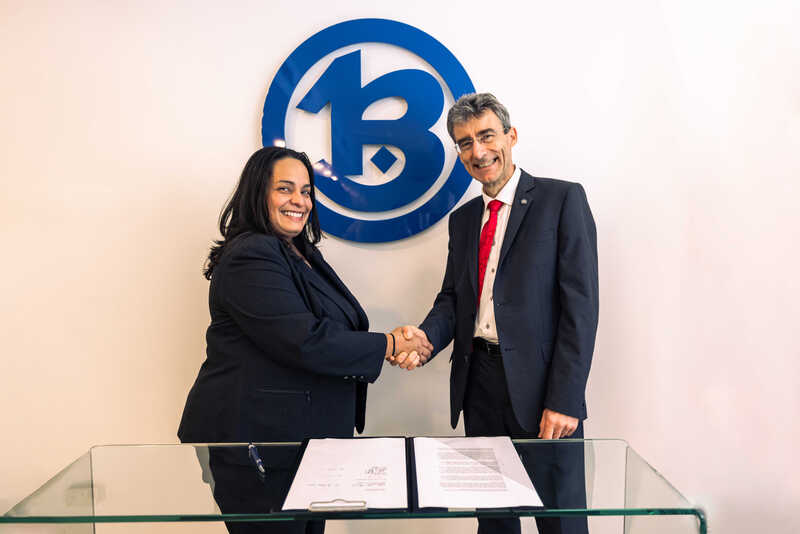
What do you expect from the cooperation with the above-mentioned American companies in terms of references, extension of know-how, etc.?
Cooperation with these global giants in the production of aerospace and defence technologies is, above all, for us a fundamental recognition of our own unique capabilities and knowledge in the segment of turbine units, which we have been expanding for more than 50 years. For us, it is a ticket to the top league of global aerospace and defence manufacturing and a significant strengthening of the PBS brand position in the global market.
What are the plans and visions of PBS Velká Bíteš for the coming years? Are you considering a greater focus on the defence industry than you have done so far?
By 2030, we have an ambitious plan to achieve the position of world leader in the production of small jet engines, especially for unmanned applications. I expect the defence industry to dominate our orders in the future. However, we have been collaborating on a number of civilian projects for a long time. Our latest project is the application of a turboshaft version of our engines to the Swedish Thunder Wasp large firefighting drone project, which we believe in so much that we would like to be involved in its distribution. We are also starting production of the new Italian Zephyr two-seater helicopter, which has as one of its specific features a turbine engine "made in PBS". In addition to the aviation sector, we also offer products in cryogenics, where we boast a number of scientific applications, including at CERN in Switzerland. In this segment, we are targeting future applications in hydrogen processing. A separate chapter is our precision superalloy castings, which are used in a wide range of engineering segments, where we plan to expand their production.
Mr. Director, thank you for the interview and congratulations on receiving the Gentleman Pro award and on PBS Velká Bíteš' position in the Czech 100 Best Companies, which is a confirmation of your exceptional commitment and excellent leadership to the company's global success.











